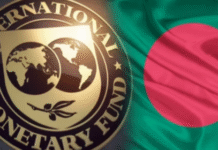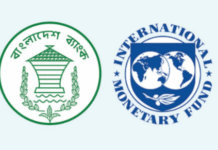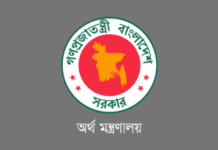
In an uptick in embracing sustainability, three more Bangladeshi listed firms have joined the Bloomberg Environmental, Social, and Governance (ESG) club, bringing the total to ten, including six homegrown companies.
The updated Bloomberg data reveals that steel giant BSRM Limited, multinational cement manufacturer LafargeHolcim Bangladesh, and lubricant and liquefied petroleum gas market leader MJL Bangladesh are the new entries based on their 2023 sustainability disclosures.
These companies have joined a pool of approximately 16,000 companies from over 100 countries.
IDLC Finance and BRAC Bank, with significant improvements in environmental and social indicators, have surpassed previous leader Grameenphone for the first time.
Still well below its regional peers, IDLC achieved its highest-ever ESG score of 44.3 as a Bangladeshi company, followed by BRAC Bank with a score of 42.89 out of a possible 100.
Grameenphone, British American Tobacco Bangladesh, Marico Bangladesh, and LafargeHolcim Bangladesh scored within the range of 30-40. Homegrown companies Walton Hi-Tech, MJL, Square Pharmaceuticals, and BSRM scored within the 24-30 range.
“Bloomberg assigns equal weight to the environmental, social, and governance segments. Each segment has over a hundred indicators that companies may report publicly, if relevant,” said Anika Mafiz, head of investment strategy at BRAC EPL Stock Brokerage.
Her firm, a leader in serving international investors in the stock brokerage market, is the sole ESG promoter in the industry.
She explained that Bloomberg voluntarily collects data from public disclosures of sustainability efforts, with quantitative disclosures carrying more weight in scores than qualitative ones.
“Our ESG score jumped because we chose to lead with purpose. By transparently disclosing our carbon emissions, committing to ambitious net-zero targets, and investing in green and sustainable financing, we turned intent into impact,” said M Jamal Uddin, CEO of IDLC Finance.
“Sustainable business is about seeing beyond profits to the greater good. While the path demands higher investments, it builds trust, reduces risks, and ensures lasting value,” said Syed Javed Noor, additional managing director of IDLC.
BRAC Bank said in a statement, “ESG is not just a framework – it is the cornerstone of our strategy. By integrating sustainability into our core operations, we create lasting value for stakeholders and contribute to a brighter, greener future.”
BSRM Deputy Managing Director Tapan Sengupta said his company has made significant investments in technologies to save energy and water and reduce air pollution.
“We discharge no water from the steel plant; we recycle it. Our plant’s zinc ash no longer flies into the air; we carefully collect it and export it as a byproduct,” he added.
LafargeHolcim Bangladesh CEO Mohammad Iqbal Chowdhury said its parent company is a global leader in innovative and sustainable building solutions, and the company aims for net-zero emissions.
“Our sustainability efforts are built on four core pillars – climate, circularity, nature, and people,” he added.
BAT Bangladesh is the only company in the country to secure core certification by the Alliance for Water Stewardship for good water governance across all its manufacturing sites, said its Head of Corporate and Regulatory Affairs Shabab Ahmed Choudhury.
Alongside responsible resource management, the company is committed to achieving carbon neutrality in its direct operations by 2030, he added.
Alongside direct social and other sustainability impacts of the core business, each company mentioned their additional efforts for employees’ welfare and efforts for socioeconomic development to make surrounding peoples’ lives better.
The ESG potential
Corporate Bangladesh has been slow to embrace sustainability compared to its peers; however, the growing compliance among exporters has gradually popularised these practices among an increasing number of firms, said industry experts.
As most of the leading exporters are private companies, the Bloomberg ESG universe does not fully reflect this trend due to a lack of public disclosures, according to Anika Mafiz.
Additionally, some listed firms like Apex Footwear have embraced sustainability, but they have not yet received a Bloomberg ESG score due to the lack of regular disclosures for three consecutive years, she added.
BRAC EPL Stock Brokerage CEO Ahsanur Rahman told TBS that ESG practices are becoming a key criterion for many foreign investors. The global ESG investment market has grown to over $25 trillion, with a forecasted annual growth rate of over 18% in the next decade.
He believes that more ESG practices and a standardised reporting format based on international standards could help Bangladesh secure a share of this fund.
“Our neighbouring countries like India, Thailand, and Malaysia have made it mandatory for listed companies to disclose their ESG efforts, and such initiatives are already helping companies in those markets attract ESG-focused funds,” he added.
According to Bloomberg, ESG-rated companies make up 94% of global equity market capitalisation.
An increasing number of investors feel responsible for addressing the fact that the world’s listed companies are responsible for 60% of global carbon emissions.
Ahsanur Rahman noted that Pakistan and Sri Lanka have 60 and 15 ESG-rated listed companies, respectively, with significantly higher average and top scores.
“To catch up, Bangladesh’s bourses need to list more sustainability stars, and regulations should make ESG reporting mandatory,” he said, as Bangladesh is already home to 229 green apparel factories, with a strong presence in the top 10.
The government and private sector in Bangladesh have separate sustainability initiatives in the country.
tbs









